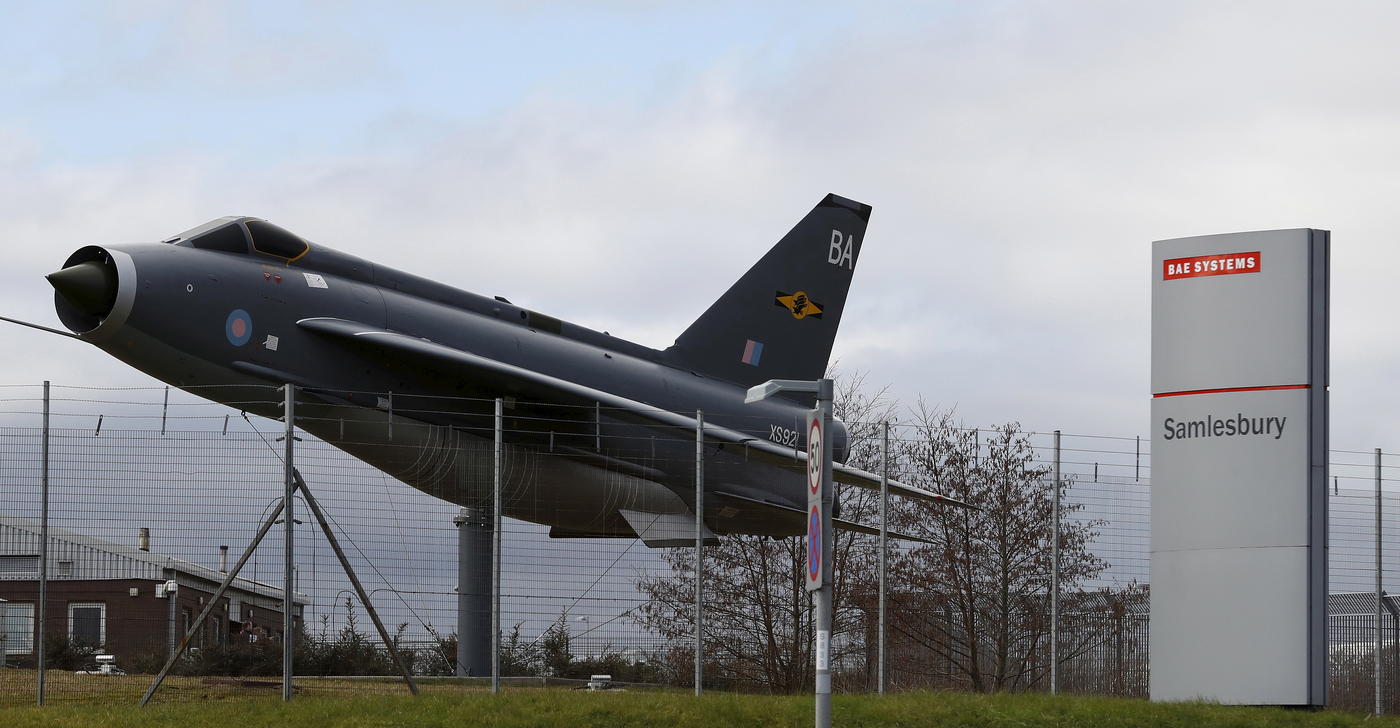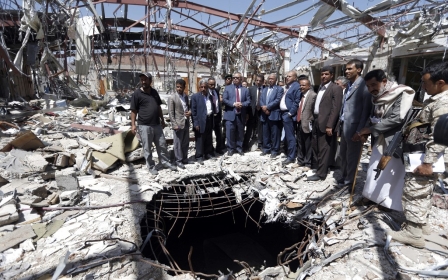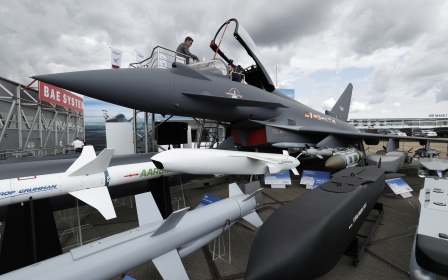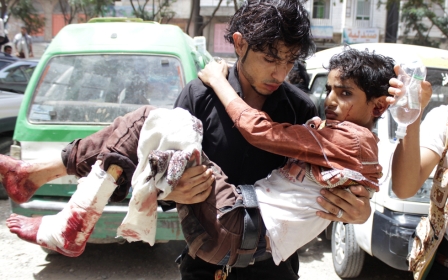Court orders UK to suspend new arms sales to Saudi over Yemen war concerns
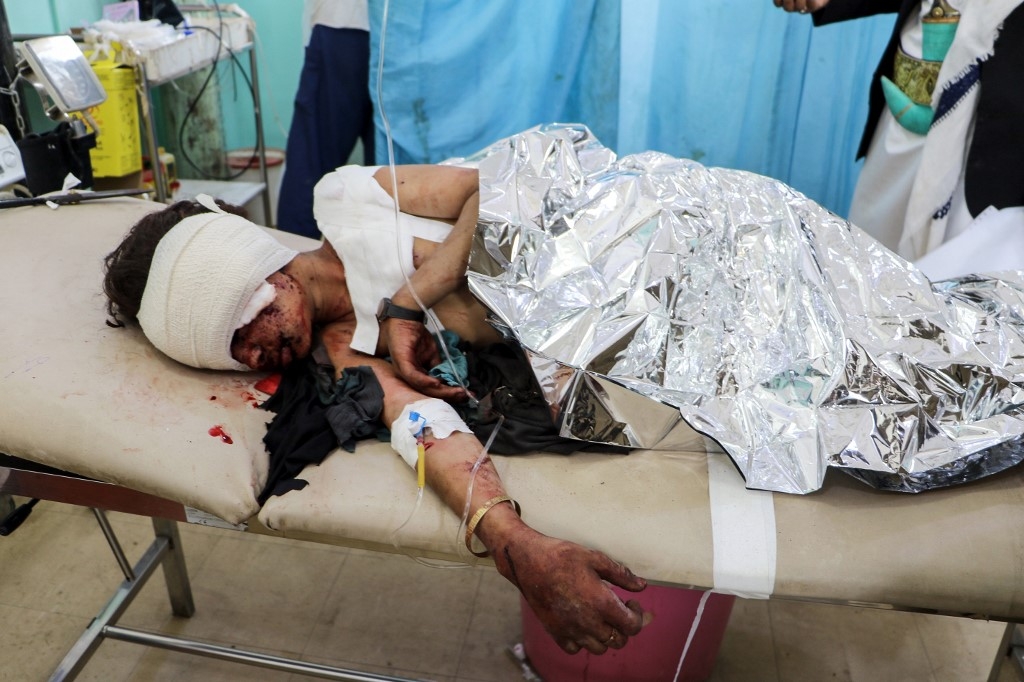
The UK government was ordered to review its multi-billion-pound arms trade to Saudi Arabia and suspend the issuing of new sales licences after campaigners claimed a partial victory in a court battle on Thursday over the legality of Riyadh’s war in Yemen.
Lawyers for the London-based Campaign Against Arms Trade (CAAT) had argued that the sales are in breach of international humanitarian law because of the disproportionate harm the weapons cause to civilians.
In a judgment, the Court of Appeal ruled that the government had made an error by failing to make an assessment of whether there was a risk that equipment sold to Saudi Arabia might be used in the commission of serious violations of international humanitarian law.
It said the government's decision-making process was unlawful in one significant respect, in that it had not considered the Saudi-led coalition's attitude to past breaches of international humanitarian law.
And it ordered Liam Fox, the UK's international trade secretary, to look again at past decisions he has made.
The judgment did not order Fox to immediately suspend current arms sales licences, but it means the government is unable to grant any new licences pending an expected appeal by the Department of International Trade to the Supreme Court.
The court rejected two other grounds on which CAAT's lawyers questioned the legality of continuing arms sales: the way in which Fox and his advisers assessed Saudi Arabia's own willingness to prevent breaches of international humanitarian law and the way they interpreted the term "serious violation" of those laws.
In a statement, a DIT spokesperson said: “This judgment is not about whether the decisions themselves were right or wrong, but whether the process in reaching those decisions was correct.
“We disagree with the judgment and will be seeking permission to appeal.”
The UK government has licenced the sale of at least £4.7bn ($6bn) worth of arms to Saudi Arabia since a coalition led by the Gulf kingdom intervened in Yemen’s civil war in March 2015.
This includes £2.7bn ($3.4bn) worth of aircraft and £1.9bn ($2.4bn) worth of missiles, bombs and grenades.
There are also an estimated 6,200 British contractors working at Saudi military bases, training pilots and maintaining aircraft, and more than 80 Royal Air Force personnel serving in the country, some within the command and control centre from where targets in Yemen are selected.
Reacting to Thursday's judgment, CAAT spokesperson Andrew Smith said: “We welcome this verdict, but it should never have taken a court case brought by campaigners to force the government to follow its own rules.
“The Saudi Arabian regime is one of the most brutal and repressive in the world, yet, for decades, it has been the largest buyer of UK-made arms.
“No matter what atrocities it has inflicted, the Saudi regime has been able to count on the uncritical political and military support of the UK. The bombing has created the worst humanitarian crisis in the world. UK arms companies have profited every step of the way. The arms sales must stop immediately.”
Emily Thornberry, shadow foreign secretary for the opposition Labour Party said a public or parliamentary inquiry was needed to establish which ministers were responsible for breaches of the law over arms sales.
She also called for a United Nations-led investigation into breaches of international law in Yemen and an immediate suspension of all arms sales for use in Yemen.
“This devastating judgement proves everything Labour has been saying for years: that ministers have wilfully disregarded the evidence that Saudi Arabia was violating international humanitarian law in Yemen, while nevertheless continuing to supply them with weapons," said Thornberry.
World's worst humanitarian disaster
The United Nations says the war between the Saudi-led coalition and Houthi rebels has resulted in the world’s worst humanitarian disaster. It has verified several hundred attacks on schools, health centres, roads, bridges, and water facilities.
It estimates that the war has left tens of thousands dead or injured, including at least 17,700 civilians and that 3.2 million people now need treatment for acute malnutrition, including two million children under the age of five.
Much of the British weaponry is being supplied by BAE Systems, the country’s largest arms manufacturer, while ordnance is also being supplied by Raytheon UK.
The court battle not only challenges these companies' trade with Riyadh, it also calls into question the effectiveness of the UK’s arms control mechanisms.
Parliamentary oversight of arms sales is provided by the parliamentary Committee on Arms Exports Controls, which the UK government says is a key part of “one of the most robust arms exports control regimes in the world”.
The claim is questioned even by a number of the committee’s own members, who say it works to support government arms sales policies, rather than to scrutinise them.
The true level of arms sales is likely to be far higher than government figures disclose, as many are transferred under an opaque arrangement known as the Open Licence system.
A number of government officials and lawyers are also privately questioning ministers’ claims that the UK is not “party to the conflict”, and therefore not legally responsible for the attacks on civilians.
There have been a number of unconfirmed reports that British troops have been engaged in combat against Houthi forces on the ground in Yemen, with five reported to have been wounded earlier this year.
Thursday's judgment was also welcomed by other campaigners who have lobbied against arms sales to Saudi Arabia.
"This judgment is a victory for the innocent civilians of Yemen who are being subjected to unimaginable horrors," said Yasmine Ahmed, executive director of Rights Watch (UK).
"Today the UK Court of Appeal ruled that their voices can no longer be silenced, and that it is no longer tenable for the UK government to effectively ignore the mounting evidence that the Saudi-led coalition has and continues to perpetrate serious violations of international humanitarian law using UK military equipment.”
Middle East Eye propose une couverture et une analyse indépendantes et incomparables du Moyen-Orient, de l’Afrique du Nord et d’autres régions du monde. Pour en savoir plus sur la reprise de ce contenu et les frais qui s’appliquent, veuillez remplir ce formulaire [en anglais]. Pour en savoir plus sur MEE, cliquez ici [en anglais].


